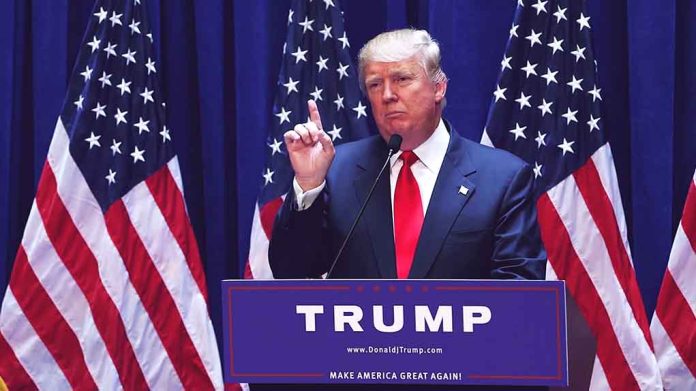
Ohio Senator J.D. Vance admits to a rift with Donald Trump over federal abortion ban statements, highlighting GOP divisions on the contentious issue.
At a Glance
- J.D. Vance says he’ll no longer speak for Trump on issues without prior discussion
- Trump disputes Vance’s earlier claim that he would veto federal abortion legislation
- Trump emphasizes abortion should be left to states, not federal government
- Vance maintains GOP 2024 ticket does not support a national abortion ban
- Debate performance highlights differing approaches to abortion issue within GOP
Vance Backtracks on Trump’s Abortion Stance
Ohio Senator J.D. Vance has found himself at odds with former President Donald Trump over the contentious issue of a federal abortion ban. In a recent interview, Vance admitted to the difficulties of articulating Trump’s position on such a sensitive topic, revealing a clear disconnect between the two Republican figures.
Vance’s revelation came after Trump publicly disputed the senator’s earlier statement suggesting he would veto federal abortion legislation. This disagreement has sparked debate within the GOP about the party’s future direction on abortion policy and highlighted the challenges of aligning with Trump’s often-shifting positions.
Trump’s Stance on Abortion: States’ Rights vs. Federal Ban
During a recent debate with Vice President Kamala Harris, Trump declined to commit to vetoing a national abortion ban, instead emphasizing that he believes the issue should be left to individual states. This position aligns with his previous statements and actions, including his appointment of Supreme Court justices who played a role in overturning Roe v. Wade.
“I’m not signing a ban,” he said, adding that “there is no reason to sign the ban” because of the overturning of Roe v. Wade, which once granted a federal right to abortion.
Trump’s stance on abortion remains a focal point for both supporters and critics. While he takes credit for the Supreme Court’s decision to overturn Roe v. Wade, he has also been careful not to alienate moderate voters by endorsing a federal ban. This delicate balancing act reflects the complex political landscape surrounding the abortion issue.
Vance’s Lesson in Speaking for Trump
Senator Vance, recognizing the potential for misalignment with Trump’s positions, has stated that he will no longer speak on behalf of the former president without prior consultation. This decision underscores the challenges faced by Republican politicians in navigating Trump’s influence within the party while maintaining their own credibility.
“I think that I’ve learned my lesson on speaking for the president before he and I have actually talked about an issue,” – Vance said in an interview with Meet the Press host Kristen Welker on Sunday morning.
Despite the apparent disagreement, Vance continues to maintain that the GOP’s 2024 ticket does not support a national abortion ban. This assertion aligns with Trump’s emphasis on state-level decision-making but leaves room for interpretation and potential policy shifts as the election approaches.
Implications for the GOP and 2024 Election
The public disagreement between Vance and Trump on abortion policy highlights the ongoing debate within the Republican Party about how to address this divisive issue. As the 2024 election season heats up, the GOP will need to navigate these internal divisions while presenting a unified front to voters.
Public opinion polls consistently show that a majority of Americans support legal abortion access, putting pressure on Republican candidates to find a message that appeals to both their base and moderate voters. The debate performance and subsequent clarifications from both Trump and Vance demonstrate the challenges in crafting a coherent party stance on abortion.
As the election draws nearer, it remains to be seen how the Republican Party will reconcile these differing views and present a clear policy position on abortion to the American people. The ongoing discussion between party leaders like Trump and rising stars like Vance will likely play a crucial role in shaping the GOP’s approach to this contentious issue in the months ahead.













